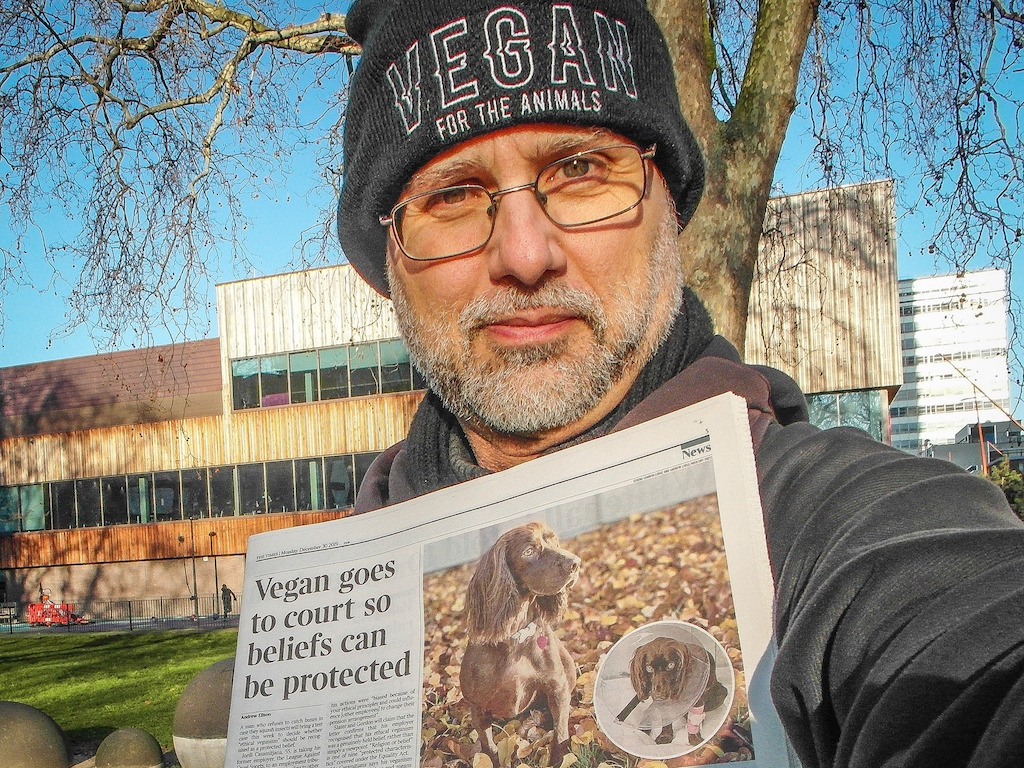3 Mins Read
An employment tribunal in Norwich, England has recently ruled that ethical veganism is a philosophical belief protected by the law against discrimination. The ruling came in a case brought by Jordi Casamitjana, a man who claimed that he had been unfairly sacked by animal welfare charity League Against Cruel Sports (LACS) after he raised concerns that his pension fund invested in companies that had been invovled in animal testing. The landmark judgement will have potentially significant impacts on workplace and employment rights, transport and the provision of goods and services.
Jordi Casamitjana has just been told by the employment tribunal that he is entitled to equality protections for his ethical veganism. Judge Robin Postle ruled in a short summary that ethical veganism satisfies the qualifications necessary for it to be considered a philosophical belief akin to religion that is protected under law against discrimination in the United Kingdom, the Equality Act 2010. For a belief to be protected under this law, it must meet various tests, which include being widely respected in democratic society, compatible with human dignity and not in conflict with the fundamental rights of other citizens.
Commenting on the tribunal ruling, Casamitjana expressed that he was delighted at the outcome and “for the words of the judge, who clearly understood what ethical veganism is.”
Like dietary vegans, ethical vegans eat a plant-based diet, but ethical vegans are distinguished by their efforts to try to avoid contact with all products derived from animals or has been involved with any animal exploitation. It would, for instance, include not wearing items of clothing made of wool and leather, and eliminating products that have been tested on animals.
Casamitjana, who considers himself an ethical vegan, will choose to walk rather than take buses in order to avoid contributing to accidental crashes with insects or birds.
The ruling, which represents the first of a two-part employment trial, does not settle Casamitjana’s other claim to have been unfairly dismissed by the League Against Cruel Sports (LACS) after he disclosed that his pension fund had invested in companies associated with animal testing. With this basis, the litigation will now move on to decide on the lawfulness of his treatment by his former employer, who maintains that Casamitjana was dismissed due to misconduct rather than his ethical veganism.
Casamitjana solicitor, Peter Daly, says that the landmark recognition of ethical veganism as a philosophical belief protected under the Equality Act 2010 will have “potentially significant” effects on multiple aspects of life, from employment and workplace rights to education, transport and the provision of goods and services.
Legal expert with the Vegan Society Dr Jeanette Rowley points out that the ruling could form the basis for schools or hospitals to receive more institutional support to meet the moral needs of ethical vegans, such as ensuring that cruelty-free options are available.
The win for ethical veganism comes as the vegan movement is reaching an all-time global high. Thanks to increased global attention towards the climate crisis and the adverse environmental and health impacts of consuming meat and dairy, consumers are now looking for do-good brands and moving towards an increasingly plant-based lifestyle overall. Last year, the movement that encourages people to adopt veganism for the entire month of January, Veganuary, managed to attract over a quarter of a million participants, with even more people joining in to kick the new decade off.
Lead image courtesy of Jordi Casamitjana, Ethical Vegan.




